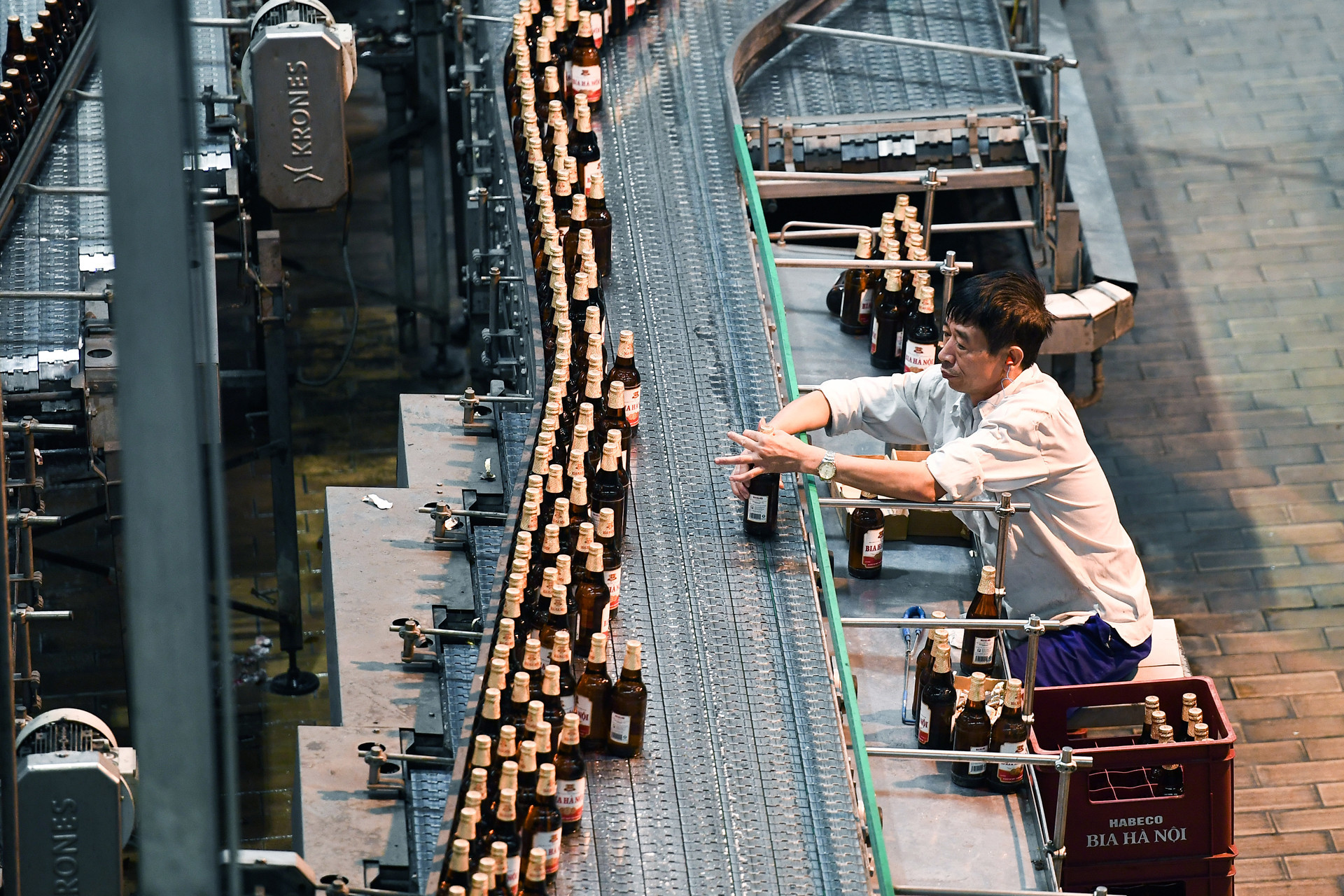
Presiding over the conference on Resolution No 2 late last week, Deputy Minister of Planning and Investment Tran Duy Dong made a request.
“I hope that relevant ministries and branches would refer to the advanced approaches to state management shown in the Decree 15/2018 on food safety management, and not restore the procedures, licenses and business conditions which have been removed or simplified, and not add new unnecessary procedures,” Dong said.
Dong’s request reminded businesspeople when required business conditions had mushroomed. More than 12 years ago, the government issued Decree 38/2012, guiding the implementation of the Law on Food Safety. The decree was described as a confusing scheme which caused difficulties for thousands of Vietnamese and foreign enterprises.
For a long time, many enterprises, associations of enterprises requested the Ministry of Health (MOH) amend the regulations in the decree and change the management mechanism from ‘pre-check’ to ‘post-check’. However, MOH rejected the request because the then Deputy Minister of Health – Truong Quoc Cuong – did not agree to the proposal.
The Central Institute of Economic Management (CIEM) estimated that enterprises had to spend 5.4 million working days a year to obtain certificates on food safety.
However, amid the criticism from many parties for many years, Cuong and MOH leaders finally reached a compromise. The government then promulgated Decree 15/2018 to replace Decree 38.
The new points of the new decree are that enterprises have to make a declaration about their products and take responsibility for the information instead of having to wait for the MOH’s and local agencies’ approval.
Analysts estimate that the changes in management approaches and decentralization have helped reduce 90 percent of costs for administrative procedures, 10 million working days and VND3.7 trillion in operation costs.
The distance between policies and real life
The spirit of this advanced management thinking, regrettably, is not popular. Chair of the HCM City Food and Foodstuff Association Ly Kim Chi complained that Decree 09/2016 on adding micronutrients to foodstuff caused negative consequences to food companies over the last seven years.
“The observance of regulations and administrative procedures of the decree, plus the persistent difficulties, have made it very difficult for small and medium enterprises to run business and recover after the Covid-19 pandemic,” Chi said.
CIEM’s Nguyen Minh Thao, one of the authors of Resolutions 19 and 02, noted that ministries and branches are still maintaining barriers by setting complicated procedures, thus increasing enterprises’ compliance costs.
There exists a big gap between the government’s instructions on business environment reshuffling and things done in reality. The government always repeats the need to reform at meetings, but in fact the reform has been going at a snail’save, and some business fields have seen even more barriers installed.
VCCI’s (the Vietnam Chamber of Commerce and Industry) Deputy Secretary General Dau Anh Tuan cited newly set barriers.
Decree No10/2020 requires passenger transport firms to provide the content of transport contracts to provincial/municipal transport departments by email before every trip.
Meanwhile, hundreds of trips are carried out every day, so, compliance has caused difficulties for both transport firms and transport departments which have to receive hundreds of emails each day.
Another example is Decree No 09 which requests to increase the iodine salt content in food, while wheat used to process foodstuff must be strengthened with iron and zinc. The legal document has been facing strong opposition from food and foodstuff companies because it has led to an increase in production costs, but nothing has changed since the day of promulgation.
“Many complaints from businesses still have not been reconsidered by policy makers,” Tuan said. “It happens that while considering removing some unnecessary regulations as requested, state agencies add new requirements."
Resolution No 2 has set ambitious goals for Vietnam’s development: Vietnam needs to be among the top 50 countries in sustainable development, gain 3-grade promotion in least in Global Innovation Index, 5-grade promotion in e-government, 2-grade promotion in property rights, 4-grade promotion in logistics efficiency, 2-grade promotion in tourism and travel development capability, and among top 30 in cybersecurity.
Lan Anh